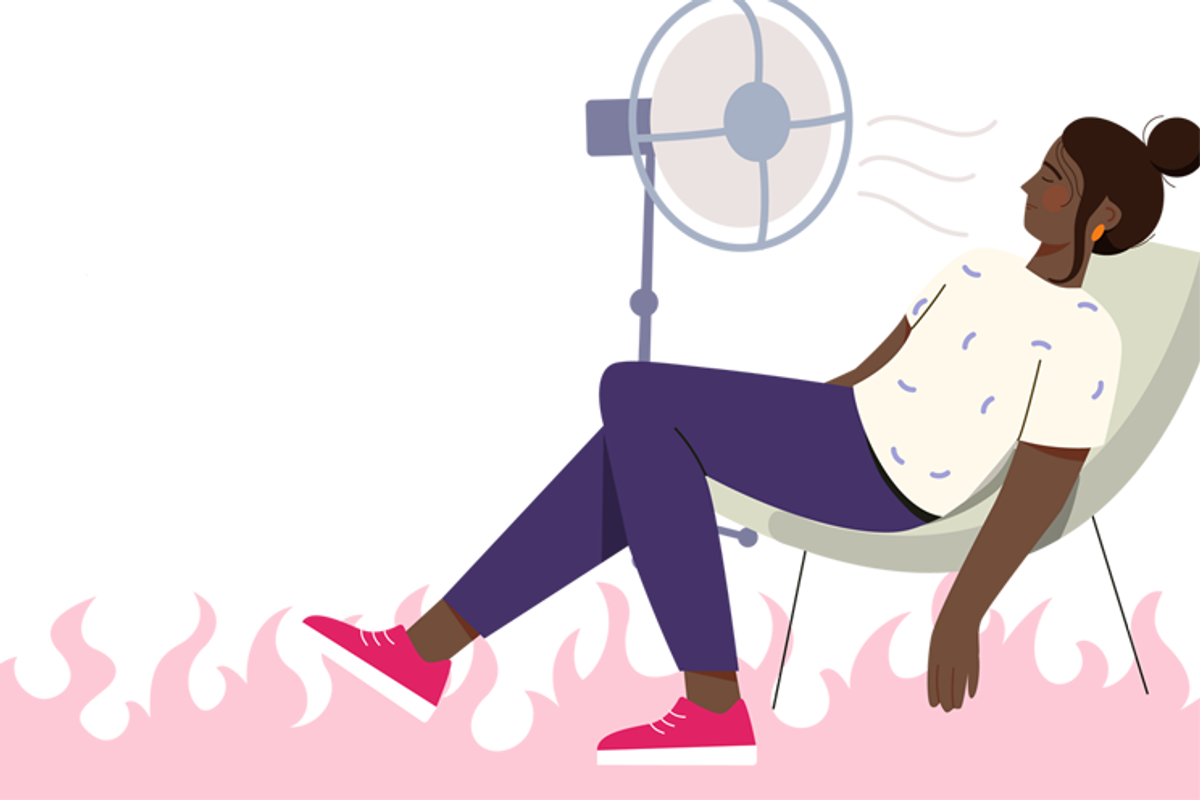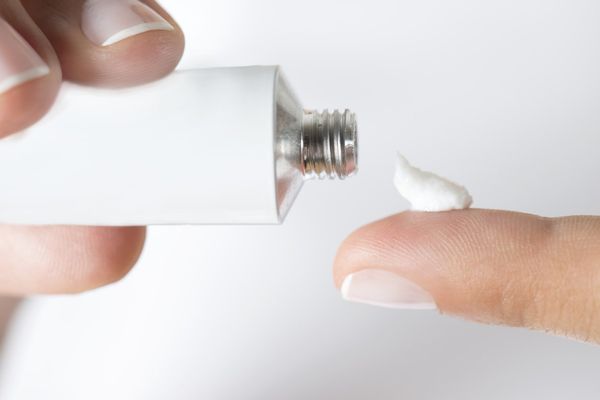What are hot flashes?
Hot flashes (also called night sweats when they happen at night) involve a sudden rise in body temperature and may occur with:
- Flushing
- Sweating
- Chills
- Rapid heartbeat
- Anxiety
Up to 3 out of 4 of women have hot flashes during perimenopause, the period leading up to menopause.
How do race and ethnicity affect hot flashes?
- Hot flashes last several years longer for Black and Hispanic women than other racial and ethnic groups.
- People from certain racial and ethnic groups are also more likely than white people to experience poor sleep — and the resulting health effects.
How do hot flashes affect sleep?
- Many women wake up just before or during hot flashes , which disrupts the body’s sleep cycle.
- Women can be woken every hour by hot flashes.
- Severe hot flashes are linked to long-term sleep problems such as insomnia.
- Lack of sleep can lead to health problems, some of them serious.
hot flashes → disrupted sleep → long term sleep problems → other health problems
In one study, more than 4 out of 10 perimenopausal women reported experiencing sleep problems, with symptoms getting worse as they got closer to menopause.
What does sleep loss caused by hot flashes do to the body?
- Poor sleep is tied to depression, anxiety and other mental health issues .
- Brain problems such as memory loss and difficulty concentrating are linked to sleep loss.
- Over time, poor sleep can hurt your heart. Sleep problems are linked to heart disease and high blood pressure .
- Lack of sleep can weaken your immune system , making it harder for your body to fight off sickness.
- Not getting enough sleep can affect the body’s ability to regulate blood sugar , increasing your risk of type 2 diabetes and other metabolic problems.
- People who don’t get enough sleep may be more likely to experience pain or notice their pain getting worse.
- Just one night of poor sleep changes the levels of hormones that affect hunger and appetite, causing us to feel hungrier.
Help is available for hot flashes and sleep loss
Are hot flashes and/or sleep loss affecting your ability to enjoy life — or simply to function?
Jot down a detailed list of symptoms to bring to your healthcare provider (HCP). If you feel you’re not getting the help you need, seek out a menopause and/or sleep specialist.
This resource was created with support from Astellas.
- 8 Ways to Deal With Hot Flashes in the Heat (Or Is-It-Hot-In-Here-or-Is-It-Just-Summer?) ›
- Is Menopause Playing Havoc With Your Sleep? ›
- How to Tame a Hot Flash (No Hormones Required) ›
- Keep Hot Flashes at Bay When Bundled Up ›
- From Hot Flashes to Night Sweats, a Rundown of Vasomotor Symptoms During Menopause ›
- Remedy for Irregular Periods and Hot Flashes - HealthyWomen ›
- Menopause and Sleep: What's the Connection? - HealthyWomen ›








